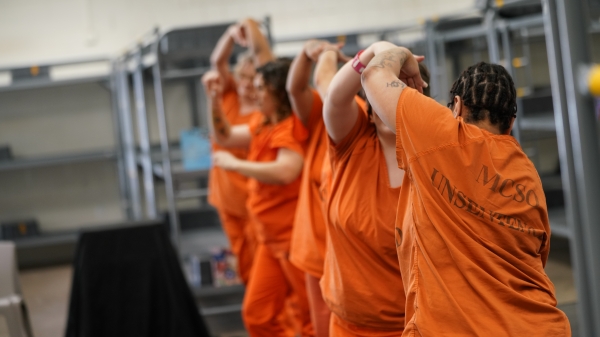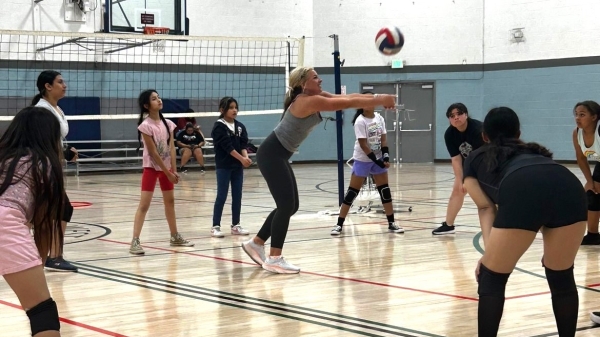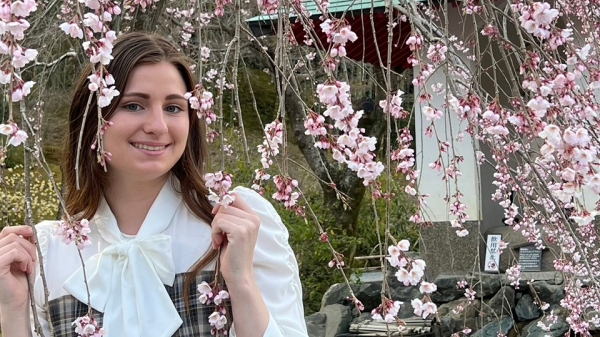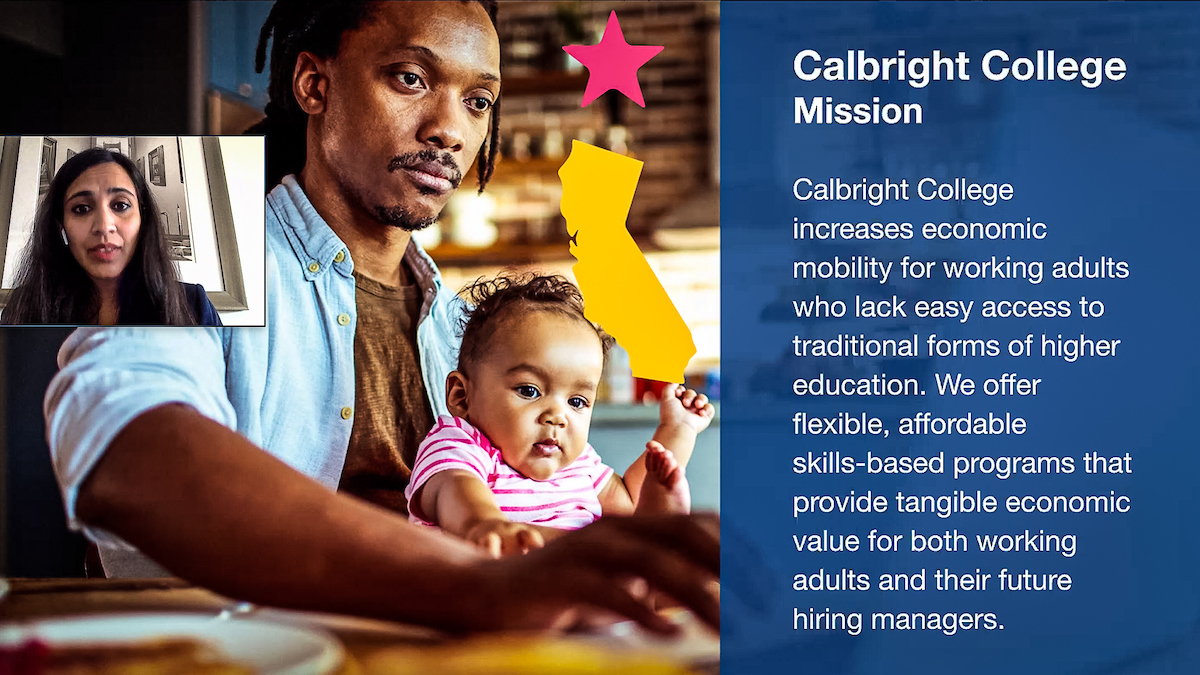Calbright president details importance of flexible, skills-based lifelong learning
Ajita Talwalker Menon, CEO of tuition-free online community college in California, spoke at ASU's Frank Rhodes Lecture

Transforming postsecondary education to reach those who most need it can be a disruptive and threatening process, but the pandemic has highlighted the extreme need for such change, according to the president of a new kind of community college.
Ajita Talwalker Menon is president and CEO of Calbright College, an online community college that opened in October 2019 for California residents.
The college, which is tuition-free, provides certificates but not degrees and is entirely self-paced, with no classes or deadlines.
“Calbright was built to be scaled and is dedicated exclusively to meeting the needs of working adults,” she said.
“They are facing the need for more affordable and flexible skills-based opportunities and education. These individuals have been underserved by conventional institutions.”
Menon spoke to the Arizona State University community on Dec. 3 as part of the Frank Rhodes Lecture Series. Her livestreamed talk was titled, “Designing for Equity: Building Innovative Systems for Lifelong Learning.”
Calbright has about 500 students and offers certificates in cybersecurity, information technology and medical coding.
Menon said that the mission of the college became even more urgent when the pandemic struck only a few months after opening.
“What that meant for our students was that advancing their knowledge and skills and motivation would be extraordinarily difficult because they were balancing these complicated life realities,” she said.
“For many, it started to feel out of reach.”
Menon noted that this year, enrollment declined across all sectors of postsecondary education, but most acutely at community colleges, which saw a nearly 10% drop in students. The enrollment of Black students declined 23% at community colleges.
In addition, enrollment for students who “stop out,” or pause their education and then want to resume, has dropped 16% across all types of institutions.
President and CEO of Calbright College, Ajita Talwalker Menon (inset), delivers the online Frank Rhodes Lecture, titled “Designing for Equity: Building Innovative Systems for Lifelong Learning,” on Dec. 3. Calbright is California’s new online two-year institution. Screen grab by Charlie Leight/ASU Now
In addition, Black, Native American and Hispanic people are more likely to die of COVID-19 than white people, and those groups also are more likely to face pandemic-related employment disruptions because they work in hard-hit industries such as retail, customer service and food service.
“It feels difficult to look at this data and feel anything but fury,” she said.
About two-thirds of Calbright students identify as people of color, according to Menon. About 41% are over the age of 40 and two-thirds live in rural areas.
Beyond the demographics, Menon said it is important to understand the students’ unique needs and backgrounds. She gave the example of a woman who works as a low-income caregiver who may have accumulated community college credits over several years without finishing.
“It’s a story of a learner who has had a positive relationship with education but because of the structure of education, such as the academic calendar or classes that are from 8 a.m. to 4:30 p.m. only, it prevents her from progressing,” she said.
“New lifers” are people who live in rural areas and want jobs nearby.
“There’s a lot of educational trauma associated with this category,” she said. “This is a population we need to find new ways of supporting because they self-select out of opportunities because of bad experiences, sometimes in high school.”
One important element at Calbright is competency-based education, in which people can convert the knowledge and skills they’ve acquired on the job to meet coursework goals. This enables them to finish faster.
The pandemic forced Calbright to modify its model somewhat, she said, putting more focus on teaching broader skills, such as digital literacy, and not just specific skills for targeted employers.
She noted that Calbright has faced fierce resistance.
“I get that,” she said. “We’re talking about very profound changes in approaches to teaching and learning and relationships that individuals have with institutions. That’s scary and provokes an existential threat to classically trained educators and even policymakers.”
Menon is especially weary of the debate over online education.
“I routinely hear, ‘Those people can’t learn online because their deficits are too great,’” she said.
“Think about what it means when somebody says that. It suggests that there are entire cross-sections of the community that we will be unable to support to adapt to a digital future. That should strike us as unconscionable.”
She praised ASU for elevating the image of online education.
“It allows us to push back against that kind of false assertion,” she said.
ASU President Michael Crow introduced Menon and called Calbright, “one of the most important projects going on anywhere.”
“The old design of community colleges, the state colleges and the research universities, while they have been powerful in the past, are not adequate for the complexity of the assignment that lies ahead,” he said.
More Arts, humanities and education

ASU Gammage program brings the arts to incarcerated women
Laughter might not be the first thing you expect to hear when arriving at Maricopa County Estrella Jail, the all-women prison facility in south Phoenix. But it was there on a recent afternoon, down…

Maryvale girls gain confidence through volleyball program
Life as a teen or tween can be tough, particularly for girls. That's why an Arizona State University partnership with a community center in West Phoenix is building confidence in girls through…

ASU double major plans to use Japanese studies in her business career
Editor’s note: This story is part of a series of profiles of notable spring 2024 graduates. Racine Merritt is a business-minded, ambitious go-getter through and through, beginning with earning two…
